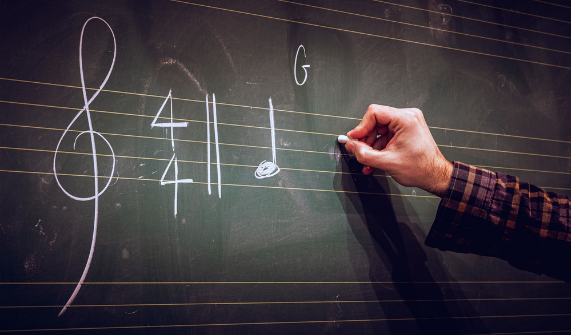Music education offers many benefits to a child’s education and personal growth.
When a child plays an instrument or sings, they are doing more than moving their fingers or using their voice. They are tapping into various skill sets. They use their senses of sight, hearing, and touch, and a variety of muscle groups.
Whether studied in school or in private lessons, music education offers numerous benefits. Here are ten of them:
1. Language skills: Recent studies reveal that musical training physically develops the part of the left side of the brain involved with processing language. Musical training can actually wire the brain’s circuits in specific ways. If your child is learning a second language, learning a musical instrument will improve how their brain understands human language.
2. Improved test scores: Students perform better on tests when they are involved in a high-quality music education program. A university study found that the quality of a music program is key. Students in elementary schools with superior music programs scored about 22 percent higher in English and 20 higher in math on standardized tests compared to schools with lower-quality music programs.
3. Self-esteem: Studying music builds a student’s confidence as they work towards mastering an instrument or singing a song. Music students learn how to express their opinions and they appreciate it when their interests are understood by others. This creates a sense of acceptance that is critical to their self-esteem.
4. Listening skills: Musical training develops a person’s ability to listen to themselves, to cues, and to other musicians. Musicians need to hear tempos, dynamics, tuning and harmonies. Music education helps develop the auditory part of the brain, which plays a critical role in our ability to perceive sounds. It is responsible for sound processing, such as determining where a sound originates and identifying what produces the sound.
5. Math skills: A music student learns fractions when they read quarter, half and whole notes. A music student who learns about rhythm learns how to count notes. They are using logic to count out the rhythms and bars, as they work through a piece of music. Many musical concepts have mathematical counterparts.”
We’ll share the rest of the benefits of musical training in next week’s blog. For now, please visit The BelindaBrady.com Arts Academy website. We offer a number of high-quality music programs that can help your child learn new skills and build their self esteem. Contact us today to discuss your options.
Written by: Nicole Holas
